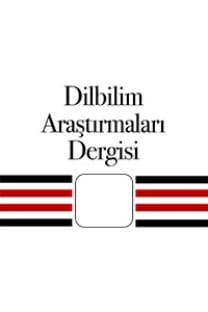(Im) Politeness and the Relevance of Compliment Responses
Bu çalışmada, incelik(sizlik) (İng. (im)poîiteness) kavramının dinleyici-konuşucunun (İng. hearer-as-speaker) değerlendirmesi olduğu varsayımından yola çıkılarak, sözkonusu değerlendirmelerin söylemin içerisinde konuşucuların üst düzlem niyetleri (İng. higher-order intentions) ve konuşucular arasındaki söylemin tarihçesi bağlanımda üst zihinsel canlandırımlar (İng. metarepresentation) olarak ortaya çıktığı öne sürülmektedir. Yazıda bağıntı kuramının zenginleştiriltniş bir modeli çerçevesinde, konuşucu odaklı incelik (İng. self-politeness), niyet bağıntısı (İng. intention relevance) ve üst düzlem eksiksiz önerme (İng. higher-level explicature) kavramlarının inceliğin araştırılmasını nasıl güçlendireceği açıklanmaktadır. Tartışmada, G. Leech (1983) ve Brown & Levinson'm (1987) incelik modelleri çerçevesinde açıklanması sorun olan iltifat yanıtlan incelenerek, konuşucu odaklı incelik ile niyet kavramlarının sözcelerin iltifat yorumu ve incelik(sizlik) değerlendirmeleri üzerine etkileri örneklendirilmiş ve incelik(sizlik) araştirmalarmda bilişsel ile toplumdilbilimsel yaklaşımların bağdaştmlmasına yönelik bir katkı sağlanmıştır.
___
1. Bratman, M. E. (1999). Faces of Intention: Selected Essays on Intention and Agency.Cambridge: CUP.2. Breheny, R. (2003). On the dynamic turn in the study of meaning and interpretation. In J.Peregrin (ed.) Meaning: The Dynamic Turn. Elsevier (Crispi Series). Retrieved November 10, 2005 from http://www.phon.ucl.ac.uk/home/richardb/dynainic tum.pdf
3. Brown, P., Levinson, S. C. ([1978] 1987). Politeness: Some Universal in Language Usage.Cambridge: CUP.
4. Chen, R. (1993). Responding to compliments: A contrastive study of politeness strategies between American English and Chinese speakers. Journal of Pragmatics, 20,49-75.
5. Leech, G. (1983). Principles of Pragmatics. London: Longman.
6. Manes, J, Wolfson, N. (1981). The compliment formula, hi F. Coulmas (ed.), Conversational Routines: Explorations in Standardized Communication Situations and Prepatterned Speech, 115-132. The Hague: Mouton Publishers.
7. Ruhi, Ş. (2004). Accounting for compliment responses: A critique of the maxim approach in politeness theory. Dilbilim Araştırmaları, 75-87. Istanbul: Boğaziçi Üniversitesi Yayınları.
8. Ruhi, Ş. (forthcoming). Politeness in compliment responses: A perspective from naturally occurring exchanges in Turkish. Pragmatics.
9. Ruhi, Ş., Doğan, G. (2001). Relevance theory and compliments as phatic communication: The case of Turkish, m A. Bayraktaroğlu and M. Sifianou (eds.), Linguistic Politeness across Boundaries: The Case of Greek and Turkish, 341-390. Amsterdam/New York: John Benjamins.
10.Spencer-Oatey, H. (2000). Rapport management: a framework for analysis, hi H. Spencer-Oatey (ed.), Culturally Speaking: Managing Rapport through Talk across Cultures,11-46. London: Continuum.
11.Spencer-Oatey, H. (2005). (Im)politeness, face and perceptions of rapport: Unpackaging their bases and interrelationships. Journal of Politeness Research, 1(1), 95-120.
12.Sperber, D. (2000). Metarepresentations in an evolutionary perspective. In D. Sperber (ed.),Metarepresentations: AMultidisciplinary Perspective, 117-137. Oxford: OUP,
13.Sperber, D., Hirschfeld, L. (1999). Culture, cognition, and evolution. In R. Wilson and Frank Keil (eds.), MIT Encyclopedia of the Cognitive Sciences.Cambridge, Mass.: MIT Press, cxi-cxxxii. Retrieved November 10, 2005, from http:// sperber.club.fr/culture and modularity.pdf
14.Sperber, D., Wilson, D. (1986/1995). Relevance: Communication and Cognition. Oxford:Blackwell.
15.Sperber, D., Wilson, D. (2002). Pragmatics, modularity and mind-reading. Retrieved August 10, 2004 from http://www.phon.ucl.ac.uk/home/deirdre/papers/Pragmatics, Modularity & Mindreading.doc (Published iaMind and Language, 17, 3-23.)
16.Taillard, M.-O. (2002). Beyond communicative intention. UCL Working Papers in Linguistics, 14,189-206.
17.Tirassa, M. (1999). Communicative competence and the architecture of the mind/brain.Retrieved July 24, 2004, from http://cogprints.ecs.soton.ac.uk/archive/00003584/01/1999-Communication.pdf (Published with modifications in Brain and Language, 68,419-441).
18.Watts, R. (2003). Politeness. Cambridge: C.U.P. Wilson, D. (2000). Metarepresentation in linguistic communication, hi D. Sperber (ed.), Metarepresentations: A Multidisciplinary Perspective, 411-448. Oxford: OUP.
19.Wilson, D., Sperber, D. (1993). Linguistic form and relevance. Retrieved June 10,2005, from http://sperber.club.fr/form.htm (Published in Lingua, 90,1-25).
20.Wilson,D.,Sperter,D.(2002).Relevance theory.UCL Working Papers in Linguistics,14,249-287.
- ISSN: 1300-8552
- Yayın Aralığı: Yılda 2 Sayı
- Başlangıç: 1990
- Yayıncı: Dilbilim Derneği
Sayıdaki Diğer Makaleler
Bilge TÜRKKAN, Semiramis YAĞCIOĞLU
(Im) Politeness and the Relevance of Compliment Responses
Türkçe'de Ayrık Yapılar: Bir Sınıflandırma Çalışması
Özge BAKIRLI CAN, Lütfiye OKTAR
Eylem Önü Konumundaki Çıplak Özne AÖ'lerin Belirlilik Durumu
The Inıtial Coronal Consonants of Some Inflectional Suffixes in Bashkir
Bir Metin Türü Olarak Düğün Davetiyeleri
Dil ve İkna: Türk Politika Söyleminde İkna Edici Önerme Yapıları
Nalan BÜYÜKKANTARCIOĞLU, Emine YARAR
Türkiye'de Eylem Sayısı ve Biçimbirimsel Özelliklerine Göre Eylem Sınıfları
